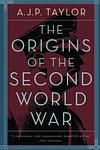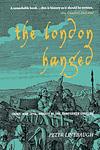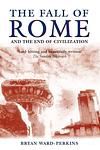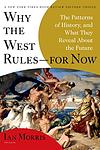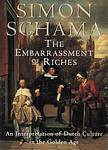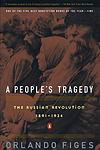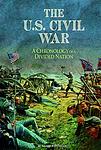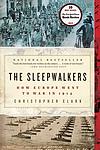The Greatest British "Nonfiction, History" Books Since 1950
Click to learn how this list is calculated.
This list represents a comprehensive and trusted collection of the greatest books. Developed through a specialized algorithm, it brings together 305 'best of' book lists to form a definitive guide to the world's most acclaimed books. For those interested in how these books are chosen, additional details can be found on the rankings page.
Genres
The category of "History" in books refers to the study and interpretation of past events, societies, and cultures. It encompasses a wide range of topics, including political, social, economic, and cultural developments, as well as the lives of individuals and groups who have shaped the course of history. History books can be written from various perspectives and may focus on specific time periods, regions, or themes. They aim to provide readers with a deeper understanding of the past and its impact on the present.
Countries
Date Range
Reading Statistics
Click the button below to see how many of these books you've read!
Download
If you're interested in downloading this list as a CSV file for use in a spreadsheet application, you can easily do so by clicking the button below. Please note that to ensure a manageable file size and faster download, the CSV will include details for only the first 500 books.
Download-
51. We Die Alone by David Howarth
"We Die Alone" is a gripping real-life tale of survival and bravery during World War II. It chronicles the story of a Norwegian commando who, after a failed anti-Nazi sabotage mission, escapes into the icy wilderness and endures a brutal winter on the run from the Germans. With the help of a courageous group of local villagers, he eventually makes a dramatic journey to neutral Sweden, across a treacherous landscape and in constant peril. The book is a testament to the human spirit's ability to endure extreme conditions and terrifying situations while maintaining the will to survive.
The 5909th Greatest Book of All Time -
52. What Is History? by E. H. Carr
The book explores the nature of historical knowledge, examining the role of the historian in shaping history through the selection and interpretation of facts. It challenges the objective stance of historians, arguing that history is an ongoing dialogue between the past and present, influenced by the societal, political, and personal biases of its narrators. The work delves into the impact of societal structures and the individual agency, advocating for a more nuanced understanding of historical processes and the subjective elements that inevitably enter into the recording of history.
The 5947th Greatest Book of All Time -
53. The World Turned Upside Down by Christopher Hill
"The World Turned Upside Down" explores the radical ideas and beliefs that flourished during the English Revolution of the 17th century, a period of civil war, regicide, and the establishment of a republic. The book delves into the lives and thoughts of the Ranters, Diggers, Levellers, Quakers, and other groups who challenged the conventional religious and social order of their time. Highlighting how these groups sought to reshape an England they believed was in moral decline, the narrative provides a detailed look at the ferment of revolutionary ideas that questioned authority and tradition, advocating for radical changes in religion, politics, and society.
The 5947th Greatest Book of All Time -
54. Midnight In Chernobyl by Adam Higginbotham
"Midnight In Chernobyl" is a non-fiction book that tells the story of the 1986 Chernobyl nuclear disaster. The book provides a detailed account of the events leading up to the explosion, the immediate aftermath, and the long-term effects of the disaster. It also explores the political and social context of Soviet Ukraine at the time, and the impact that the disaster had on the country and the world. The book draws on interviews with survivors, officials, and experts, as well as archival documents and scientific research, to provide a comprehensive and compelling narrative of one of the worst nuclear accidents in history.
The 6075th Greatest Book of All Time -
55. The Origins of the Second World War by A. J. P. Taylor
This book delves into the causes and events leading to the Second World War, challenging traditional views and suggesting that it was not a premeditated act of aggression by Germany, but rather a series of miscalculations and blunders by various nations. It argues that the war was not inevitable, but was the result of flawed diplomacy and the failure of the League of Nations. The author presents a detailed analysis of the actions of major players, including Britain, France, and Russia, providing a fresh perspective on the political climate of the time.
The 6169th Greatest Book of All Time -
56. Boswell's London Journal, 1762-1763 by James Boswell
This book is a journal-style account of a young Scottish man's experiences in 18th-century London. It provides a vivid and detailed account of the social, political, and cultural landscape of the time. The author, a law student, records his interactions with notable figures of the day, his romantic pursuits, his struggles with depression, and his efforts to establish himself in London society. His observations offer unique insights into the life and times of 18th-century London.
The 6169th Greatest Book of All Time -
57. A History of the Crusades by Stephen Runciman
This book offers a comprehensive and detailed examination of the Crusades, a series of religious wars fought in the medieval period. The author delves deep into the political, economic, and social circumstances that led to the wars, the key figures involved, and the long-lasting effects on both the Christian and Muslim worlds. The narrative is both scholarly and engaging, providing a balanced perspective on one of history's most complex and controversial periods.
The 6169th Greatest Book of All Time -
58. Among The Cities by Jan Morris
"Among the Cities" is a travelogue that takes readers on a journey to various cities around the globe, as seen through the eyes of an experienced and insightful traveler. The book offers a series of vivid portraits that capture the unique spirit, history, and culture of each urban landscape. With a keen eye for detail and a deep appreciation for the idiosyncrasies that define a place, the narrative weaves together personal anecdotes, historical snippets, and observations of social dynamics to provide an engaging reflection on the character and evolution of metropolises from every continent. The work is as much an exploration of the cities themselves as it is a meditation on the nature of urban life and the ways in which cities encapsulate the complexities of the human experience.
The 6411th Greatest Book of All Time -
59. London: The Biography by Peter Ackroyd
This book is a comprehensive exploration of the city of London, from its ancient origins to the modern era. The author delves into the city's rich history, culture, and unique character, examining its evolution through various lenses such as crime, religion, commerce, education, and entertainment. The narrative is brought to life with fascinating anecdotes, vivid descriptions, and a wealth of historical detail, providing an immersive and engaging portrait of one of the world's most iconic cities.
The 6471st Greatest Book of All Time -
60. Chasing The Monsoon by Alexander Frater
In this travelogue, the author embarks on a captivating journey following the Indian monsoon as it sweeps across the subcontinent. Starting from the southern tip of Kerala and moving up towards the northeastern state of Assam, he weaves together a tapestry of diverse experiences, meeting a variety of people and observing the profound impact that this dramatic weather phenomenon has on the land and its inhabitants. Along the way, the narrative is enriched with historical context, personal anecdotes, and vivid descriptions of the landscape, ultimately painting a portrait of the monsoon that is as much about the human spirit as it is about the forces of nature.
The 6510th Greatest Book of All Time -
61. The London Hanged by Peter Linebaugh
"The London Hanged" is a historical analysis that delves into the economic and social aspects of capital punishment in 18th-century London. The book examines how the legal system, particularly through the use of public executions at Tyburn, was employed to control the laboring classes as London evolved into a capitalist economy. It explores the lives and trials of those sentenced to hang, not just for heinous crimes but often for petty thefts, reflecting the harsh penal codes of the time. The narrative connects these executions to broader themes of class struggle, economic exploitation, and the development of legal institutions that supported property rights over human rights, offering a critical look at the intersections of law, labor, and capital.
The 6965th Greatest Book of All Time -
62. No Mercy by Redmond O'Hanlon
The book is a riveting travelogue that follows the author's harrowing journey into the depths of the Congo Basin, seeking to uncover the truth behind the legends of a dinosaur-like creature said to inhabit the region. Accompanied by a motley crew of scientists and adventurers, the author battles the relentless forces of nature, encounters a myriad of dangerous wildlife, and grapples with the psychological strains induced by the harsh and unpredictable environment. The narrative is as much an exploration of the human spirit and the bonds formed in extreme circumstances as it is a quest for a mythical beast, all told with a blend of humor, vivid description, and keen anthropological insight.
The 7120th Greatest Book of All Time -
63. The Fall Of Rome by Bryan Ward-Perkins
"The Fall of Rome" presents a compelling argument that the decline of the Roman Empire was both a rapid and devastating event, challenging the notion of a gentle transformation. The author uses archaeological evidence and material culture, such as pottery shards and coinage, to illustrate a significant decrease in economic vitality and urban life following the fall of Rome. This decline led to dramatic reductions in general living standards and the loss of sophisticated crafting and building techniques. The book effectively counters the idea of a seamless transition to the early Middle Ages, instead portraying a period marked by turmoil and hardship.
The 7129th Greatest Book of All Time -
64. The Ordeal Of Elizabeth Marsh: A Woman In World History. by Linda Colley
"The Ordeal of Elizabeth Marsh" by Linda Colley tells the story of a remarkable woman who lived in the 18th century and traveled the world, experiencing various cultures and societies. Elizabeth Marsh was born into a wealthy family in England but faced many challenges throughout her life, including being kidnapped in Morocco and facing financial ruin. Colley uses Marsh's story to explore themes of gender, power, and imperialism, and to shed light on the experiences of women in world history.
The 7145th Greatest Book of All Time -
65. Through the Language Glass: Why the World Looks Different in Other Languages by Guy Deutscher
This book explores the link between language and perception, challenging the conventional belief that languages are only tools for describing reality and do not influence the way we perceive the world. The author delves into how different languages can shape the way their speakers understand and interact with their surroundings, arguing that linguistic differences can significantly impact cognition and perception. The book combines linguistic analysis, cultural history, and cognitive science to provide a fascinating examination of how our mother tongue can affect our cognitive processes, including color perception and spatial orientation.
The 7859th Greatest Book of All Time -
66. Why the West Rules - For Now: The Patterns of History, and What They Reveal About the Future by Ian Morris
This book is a comprehensive exploration of the historical and cultural patterns that have led to Western dominance in the world. The author uses a broad range of evidence from archaeology, genetics, and linguistics to trace the development of East and West from prehistoric times to the present, arguing that physical geography, rather than culture, religion, or great men, is the primary driving force behind the rise of the West. The book also offers a forecast for the future, predicting a shift in global power from the West to the East.
The 7859th Greatest Book of All Time -
67. The Embarrassment Of Riches by Simon Schama
"The Embarrassment of Riches" is an expansive historical analysis that delves into the culture, society, and identity of the Dutch during the height of their Golden Age in the 17th century. The book explores how the Netherlands, a small, newly independent nation, managed to become a global economic powerhouse and a cradle of artistic and intellectual innovation. Through a rich tapestry of details, the author examines various aspects of Dutch life, from domestic interiors and public rituals to the values and anxieties of the era, illustrating how the wealth accumulated from trade and colonial expansion influenced Dutch culture, morality, and social customs.
The 7889th Greatest Book of All Time -
68. How War Came by Donald Cameron Watt
"How War Came" is a detailed historical analysis that explores the complex political and diplomatic landscape leading up to World War II, particularly focusing on the events of the late 1930s. The book meticulously examines the interactions among major powers, the decisions of key political figures, and the policies and treaties that played significant roles in precipitating the conflict. Through a comprehensive examination of primary sources and diplomatic communications, the narrative delves into how appeasement, aggression, and international tensions converged to ignite one of the most devastating wars in human history.
The 8091st Greatest Book of All Time -
69. A People's Tragedy by Orlando Figes
"A People's Tragedy" is an in-depth exploration of the Russian Revolution from 1891 to 1924. The book offers a comprehensive study of the Revolution's roots, its progression, and its aftermath, from the famine that gripped Russia in the 1890s, through the abdication of Tsar Nicholas II, to the establishment of the Bolshevik regime and the death of Lenin. The author uses a broad range of sources, including personal letters, diaries, and government documents, to present a detailed, humanized view of the Revolution's impact on everyday individuals, bringing to life the experiences of peasants, workers, soldiers, and intellectuals.
The 8113th Greatest Book of All Time -
70. A World On Fire:Britain’s Crucial Role In The American Civil War by Amanda Kolpin, Amanda Peterson, Susan S. Wittman
"A World on Fire" is a comprehensive account of Britain's involvement in the American Civil War. The book explores the political, economic, and social factors that influenced Britain's decision to remain neutral, despite strong sympathies for the Confederacy. It also delves into the impact of the war on British society, including the role of British citizens in the conflict and the effects of the Union blockade on British trade. The authors provide a detailed and engaging narrative of this often-overlooked aspect of Civil War history.
The 8230th Greatest Book of All Time -
71. A History of the World in 100 Objects by Neil MacGregor
This book offers a unique perspective on world history, telling the story of humanity through the examination of 100 man-made objects. The author, a museum director, uses items from the British Museum, ranging from a 2 million-year-old Olduvai stone cutting tool to a contemporary credit card, to explore various themes such as trade, religion, art, science, and politics. The book provides a fascinating lens through which to view the evolution of human civilization.
The 8335th Greatest Book of All Time -
72. The Sleepwalkers: How Europe Went To War In 1914 by Christopher Clark
"The Sleepwalkers" by Christopher Clark is a comprehensive account of the events leading up to World War I. The book argues that the war was not caused by any one nation or individual, but rather a combination of factors including nationalism, alliances, and miscommunication. Clark explores the complex political landscape of Europe in the early 20th century and the actions of key players such as Kaiser Wilhelm II and Archduke Franz Ferdinand. The book provides a detailed analysis of the events leading up to the war and challenges traditional narratives of blame and responsibility.
The 8358th Greatest Book of All Time -
73. Conquest Of Mexico by Hugh Thomas
"Conquest of Mexico" offers a comprehensive and detailed account of the Spanish conquest of the Aztec Empire, led by Hernán Cortés in the early 16th century. The book delves into the complex interactions between the Spanish conquistadors and the indigenous civilizations, highlighting the military strategies, political maneuvers, and the blend of coercion and diplomacy employed by Cortés. It also explores the profound impact of European arrival on the native cultures, the role of indigenous allies in the conquest, and the aftermath of the fall of Tenochtitlan, providing a nuanced exploration of this pivotal moment in Latin American history.
The 8363rd Greatest Book of All Time -
74. The First World War by John Keegan
This book provides a comprehensive analysis of the First World War, covering the complex origins, major battles, and significant political and military figures involved. The narrative delves into the strategic and tactical dimensions of the war, while also exploring the human experiences and the profound social and political changes it triggered. The author examines the global scale of the conflict, the innovations in warfare it introduced, and its lasting impact on the international order, offering a detailed and nuanced understanding of one of the 20th century's most pivotal events.
The 8682nd Greatest Book of All Time -
75. The First Day On The Somme by Martin Middlebrook
"The First Day on the Somme" is a detailed historical account of the first day of the Battle of the Somme during World War I, specifically July 1, 1916. The book meticulously describes the planning and execution of the battle, highlighting the British Army's strategies and the harrowing experiences of the soldiers on the front lines. Through personal testimonies, diaries, and letters from the soldiers, the author reconstructs the day's events, providing insights into the human aspects of the battle, the immense casualties, and the overall impact on military tactics and morale. The narrative not only explores the military aspects but also delves into the emotional and psychological effects on the troops, making it a poignant study of one of the bloodiest days in military history.
The 8726th Greatest Book of All Time
Reading Statistics
Click the button below to see how many of these books you've read!
Download
If you're interested in downloading this list as a CSV file for use in a spreadsheet application, you can easily do so by clicking the button below. Please note that to ensure a manageable file size and faster download, the CSV will include details for only the first 500 books.
Download



